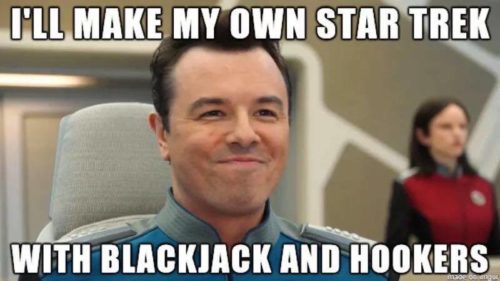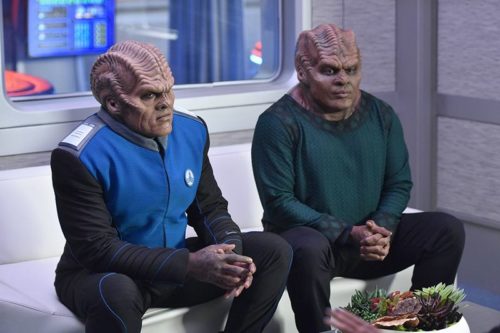Pagan Perspectives
Today’s column comes to us from Storm Faerywolf, whose column covers the intersection of Paganism and queer identities. Storm is a professional author, experienced teacher, visionary poet, and practicing warlock, and is author of “Betwixt & Between” and “Forbidden Mysteries of Faery Witchcraft.” He lives with his two loving partners in the San Francisco Bay area and travels internationally teaching the magical arts. For more, visit faerywolf.com.
The Wild Hunt always welcomes submissions for the weekend section. Please send queries or completed pieces to eric@wildhunt.org.
As a gay man, I am keenly aware of how much pop culture affects society’s perception (and treatment) of our people. When I was a child, the only references to LGBT+ people that I remember experiencing on television or at the movies were disparaging and hurtful attacks based on stereotypes. We were the brunt of the joke, figures to be pitied or despised, or we were twisted villains, a sadistic evil to be destroyed. Even when more liberal attitudes demanded an evolution of thought away from outright violence or abuse, the cultural fear and resentment was simply channeled in other, less overt directions: little actions or words that reminded us to stay in our place. Words like faggot, or dyke, or fairy. Words that we as queer culture have reclaimed, but not before having them used against us in the most despicable ways.
In the 1980s and into the early 2000s the word gay became used in exactly that way. It was a silly, off-handed insult that could be used anywhere without arousing public ire, and it would effectively become a cultural weapon against us in ways both subtle and obvious. Using the word gay to mean something unpleasant, or boring, or ineffectual – “That’s so gay” – became a common part of speech, and was used by many otherwise well-meaning and even liberal-minded folks who simply did not see it as an attack on queer people. To them, there didn’t need to be a connection between the word gay and the concept of homosexuality, because they did not consciously intend it so, even as their speech reinforced the idea that gay equaled bad.
Intentional or not, that usage, along with many other factors, fed into an environment that was actively hostile toward queer people. It started with words, but then it led to actions. A couple of disparaging jokes can turn into violence if left unchallenged. This is the insidious danger inherent with language. Sticks and stones may break our bones, but the wounds inflicted by well-chosen words can also be devastating and far-reaching.
While to many straight people these may be seen simply as “harmless jokes,” the reality is that they are far from harmless when applied to an already vulnerable segment of society. It’s easy for a person to dismiss something as simply “a joke” when they are not the one whose head is on the chopping block. I can say from personal experience that the harm caused by such behavior is real; when casual disrespect is allowed (or even encouraged, as is the case here,) it creates an environment in which certain people begin to be perceived as being less than human, which leads to discrimination and violence.
Growing up, I was often victimized by heterosexuals (or at least by those who claimed to be so,) and their hatred and ignorance was fueled (and encouraged) by a society that constantly fed them images of LGBT+ people as being legitimate targets of ridicule. I’m sure the gang of young men who threatened me on a public bus when I was 19 didn’t stop to think about how their actions were violating the sovereignty of another human being, and certainly not how their actions betrayed their own feelings of insecurity. They were products of a society that would reward them for such behavior and encourage them to never delve too deeply into the reasons behind such rewards. Under the patriarchy, masculinity is a revocable condition, which means that men must constantly be vigilant against perceived weaknesses or other signs that they might not be as much of a “Real Man®” as society demands. The upkeep and constant gatekeeping are exhausting, and they also deprive men from emotional tenderness and the comfort of non-sexual touch with other men, all for fear of being feminized and labeled as “queer.” The damage done to the collective male psyche is evident in the shape of our society.
The causality is quite clear. Like the fable of the frog in the slowly-boiling water, the social degradation that historically leads to genocide begins with seemingly innocuous actions. Little by little, step by step, society walks a steady march toward stripping away a group’s humanity, a process of demonization with deadly results. This is why whenever a politician or celebrity speaks from a place of ignorance or hatred, we must always stand up and demand better. We must also praise those voices that do stand up to make a difference, even when those voices come from the least likely of places.
There have been many cultural achievements to celebrate over the past couple of decades. In a recent episode of The Orville, “Primal Urges,” several important topics were broached with far more seriousness and care than one would expect from a show that markets itself as a comedy series. (Warning: spoilers ahead.)
For those not familiar with the show, The Orville is a creation of Seth MacFarlane (of Family Guy and American Dad! fame), a vision of a sort of “working-class” Star Trek with a comedic twist. The setting is 400 years in the future aboard the titular starship. MacFarlane stars as Captain Ed Mercer, a middlingly-competent starship captain on his first assignment, taking the crew each week through new alien territory but dealing with issues that are decidedly human – and painfully relevant.

Seth MacFarlane as Captain Mercer on The Orville [Imgur].
Dr. Finn: Couples counseling helps married people, such as yourselves, discuss and resolve conflicts with the goal of improving your long-term relationship. I’m here to guide that process.
Bortus: Will we select our own weapons?
As the story continues, we begin to see how a sense of shame has been slowly overcoming Bortus as a result of his addiction. In a conversation with Isaac, the ship’s android (The Orville’s answer to Star Trek: The Next Generation’s fan-favorite Data,) Bortus explains the emotional process that has been quietly destroying him, and in doing so exposes viewers to the emotional damage inflicted by such an addiction.
Isaac: I am curious to know how [sex] feels.
Bortus: It is a call from deep within like a baby seeking its mother’s teat. It feels as though nothing else in the world matters but satisfying the urge and achieving the goal my body has demanded of me. Then, as quickly as it began, it is complete, leaving a worn-out shell in its wake. And the only feeling I am left with, the only thing I know is that a death has occurred.
Isaac: I see. It is prudent that you are in therapy.
Even in the context of a comedy, the issue of pornography addiction is treated very seriously, and at no time do we fall into tired old tropes of overt sexual shaming that one might expect with this type of subject, even while keeping the overall feeling of the show mostly light.
Dr. Finn: Porn addiction is a disease just like any other, so we need to treat his condition with compassion and understanding.
Bortus: Is there an injection I can receive to cure this disease?
Klyden: You have had enough injections.
All of this occurs while a populated alien planet awaits imminent destruction; a dramatic setting certainly, but one that is ultimately just the background to the main narrative, which is rooted firmly in social concerns. As if these particular issues weren’t sufficient, when we finally get to the heart of Bortus’ relationship problem, we learn that it stems from a fear and hatred of gender non-conformity, sentiments of the majority of his race, sentiments that are shared by his partner. In an episode from the previous season, the couple celebrated the birth of their first child, but were shocked to learn that the child is female, a taboo in Moclus’s all-male society. They had fought with each other over their child’s right to bodily autonomy, a battle that was eventually decided by their planet’s tribunal, which ruled in favor of surgically reassigning the baby’s gender. Realizing that it was these events that drove him to withdraw emotionally from his partner, Bortus confesses that he feels Klyden did not fight hard enough against the mutilation of their child and does not know if he will ever be able to get over it.
It is a powerful moment that effectively (and unexpectedly) poses issues of gender identity, bodily autonomy, and societal pressures to an audience that might otherwise never encounter such ideas on a steady diet of corporately-driven television.

Peter Macon as Bortus and Chad Coleman as Klyden from The Orville [Fox].
Celebrities like Ellen DeGeneres and shows like Will & Grace might at first be seem like they are less important than the official actions of government, but they are able to convey ideas and messages in ways that might otherwise be perceived as threatening to the general public, and so are in a better position to change the minds and hearts of viewers in a way that politicians are far less likely to do. Perhaps The Orville was able to get away with bringing up these issues relevant to the transgender experience because the characters involved directly were not human and so didn’t pose the same threat that a direct representation might have. For that reason alone, the storyline was brilliant. We are now seeing more inclusion of sexual and gender minorities on the stage and screen, and this is a trend that will only continue to help normalize these identities so that we can have an intelligent, respectful, and informed conversation about them.
The views and opinions expressed by our diverse panel of columnists and guest writers represent the many diverging perspectives held within the global Pagan, Heathen and polytheist communities, but do not necessarily reflect the views of The Wild Hunt Inc. or its management.
The Wild Hunt is not responsible for links to external content.
To join a conversation on this post:
Visit our The Wild Hunt subreddit! Point your favorite browser to https://www.reddit.com/r/The_Wild_Hunt_News/, then click “JOIN”. Make sure to click the bell, too, to be notified of new articles posted to our subreddit.